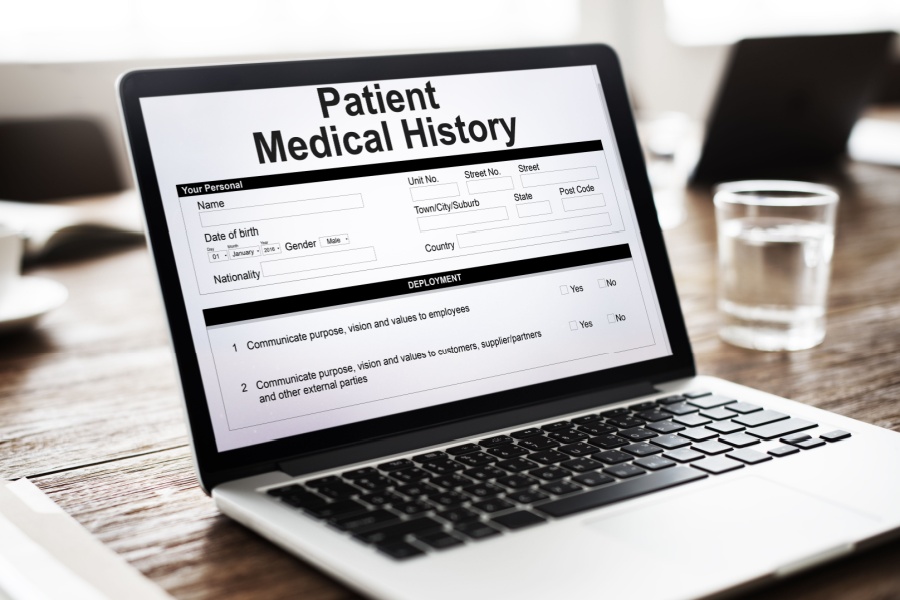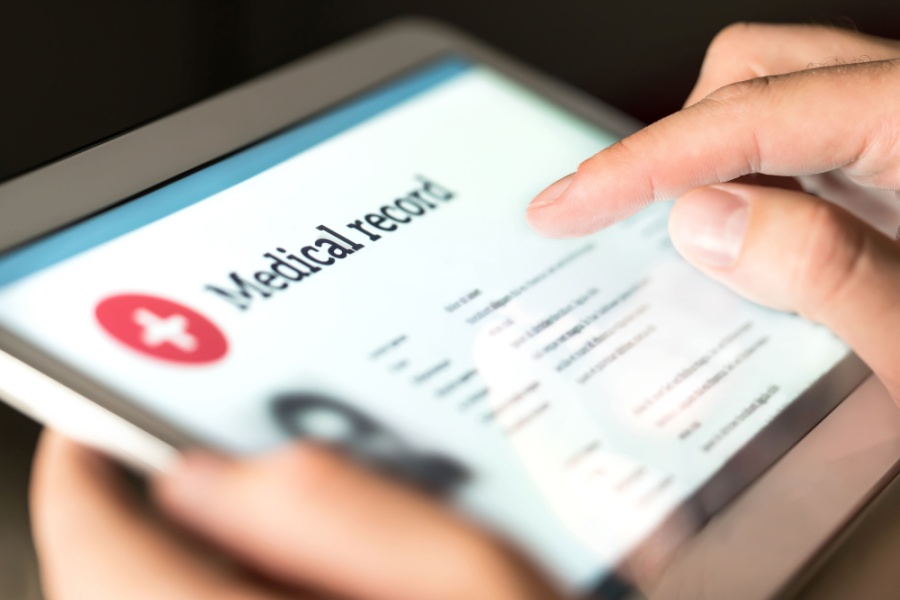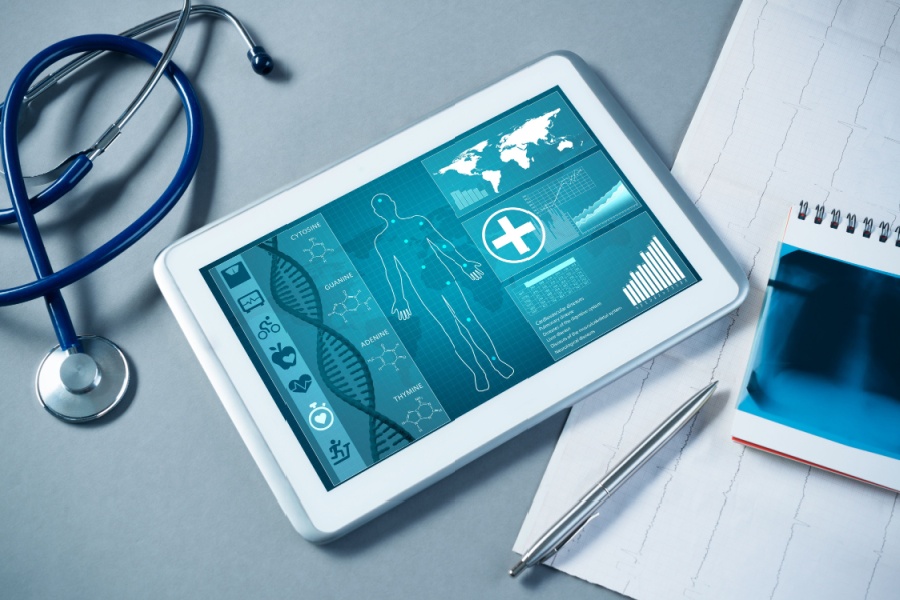With the prevalence of digital transformation nowadays, the healthcare industry has become more reliant on technology to streamline operations, improve patient care, and manage sensitive medical information. And with the rise of cyber threats and data breaches nationwide, prioritizing cybersecurity in the medical field is of the utmost importance.
As an experienced and reliable telecommunications provider, Kital understands the significance of digital safety. To help you learn about the risks to data privacy, this blog explores the importance of cybersecurity in the healthcare sector, the top cyber threats to expect, and the best practices for mitigating the risks of cyberattacks.
By learning about cybersecurity, your healthcare organization can create strategic and proactive plans to protect your patient’s digital information against common cyber threats.

The Significance of Cybersecurity in Healthcare
The security of data in healthcare refers to the measures and practices implemented to protect electronic health records (EHRs), medical devices, and healthcare systems from cyber attacks. With the digitization of most medical records and the adoption of interconnected medical devices, the healthcare industry has become an attractive target for cybercriminals to access sensitive information for malicious purposes.
With that said, a few key reasons to install strong digital security are:
- Protecting Patient Privacy: The Data Privacy Act (Republic Act No. 10173) and the acquisition of a HIPAA (Health Insurance Portability and Accountability Act) certificate mandate the protection of all your patients’ digital health information. A data breach can expose sensitive medical details, leading to identity theft and discrimination—which is a violation of these policies.
- Disruption of Care: Cyberattacks can cripple your healthcare system, disrupting access to patient records, hindering communication between providers, and delaying critical treatments. This can have a significant impact on your patient’s treatment plans and outcomes if not mitigated immediately.
- Financial Losses: Your healthcare institution can incur substantial financial losses due to data breaches. In fact, a report last December 2023 stated that 38% of companies in the Philippines have lost ₱56.34 million due to cyberattacks in 12 months. These costs were either due to ransomware payments, investigation fees, remediation, or regulatory fines associated with the Data Privacy Act.
The reliance of the medical sector on technology for patient care creates more potential entry points for cyberattacks. The adoption of various technologies in your healthcare network must go hand-in-hand with implementing strong and reliable network security solutions.
Common Cybersecurity Threats in the Healthcare Industry
Protecting your patient’s information from cyberattacks begins with understanding the top digital threats healthcare industries face.
1. Ransomware Attacks
Attacks using ransomware involve the deployment of malicious software that encrypts your files or your entire system, rendering them inaccessible until a ransom is paid. Your healthcare facilities are particularly vulnerable to ransomware attacks due to the critical nature of medical data and its potential impact on patient care.
2. Phishing and Social Engineering
Phishing is the most prevalent digital attack in the Philippines. It targets your healthcare employees and patients with fraudulent emails, messages, or websites designed to trick them into revealing sensitive information or downloading malware.
On the other hand, social engineering tactics such as impersonation and pretexting, are often used to manipulate healthcare personnel into disclosing login credentials or financial details.

3. Insider Threats
From the name itself, insider threats involve negligent actions by your employees, contractors, or partners that compromise the security of your healthcare systems and data. Insider threats can include unauthorized access to patient information, data theft, or sabotage of medical devices and infrastructure.
4. Vulnerabilities in Medical Devices
Connected medical devices, such as insulin pumps, pacemakers, and infusion pumps, are vulnerable to cyber attacks if not adequately secured. If these devices are exploited, they can have life-threatening consequences for patients and pose significant risks to your healthcare organization.
As long as you continue to use technology as part of your medical operations, knowing the various cyber threats is important for mitigating attacks. Learning them can help you identify the type of security system you need based on your current network.
Best Practices for Healthcare Cybersecurity
After identifying the potential digital risks in your healthcare system, implementing preventative measures for your data security is the next step. A few best practices in cybersecurity are:
- Implement Multi-Layered Security Controls: As a healthcare organization, you should deploy multiple layers of security controls. This includes firewalls, intrusion detection systems (IDS), encryption, and access controls—protecting your medical data from different cyber threats.
In case your company is using a purely cloud-based system, ribbon session border control can prove to be beneficial to secure your communication and information across all your channels. - Secure Medical Devices: Your medical facility must implement measures to secure connected medical devices through regular patching, network segmentation, and vulnerability management. This can prevent cyber attacks and effectively protect against ransomware.
- Monitor and Detect Threats: Schedule deployments of advanced threat detection and monitoring tools to check for and respond to cyber threats in real time. This includes monitoring network traffic, analyzing log data, and employing behavioral analytics to identify any suspicious activity.
Cybersecurity in the healthcare sector safeguards your patient data, maintains trust, and ensures the delivery of quality medical care. By adopting a proactive approach to protecting your organization’s digital information, you can successfully uphold the integrity of your healthcare delivery system.

Investing in Kital for Secure Digital Solutions
As cyber threats continue to evolve, ongoing investments in cybersecurity infrastructure, education, and collaboration are essential to ensuring the security and resilience of your medical organization. With updated systems, you can safeguard sensitive healthcare information and continue providing medical care.
With that said, consider partnering with Kital Philippines to ensure seamless and secure operations for your healthcare facilities. Our systems use technology that can simplify your operations while keeping your network infrastructure secure. Our products have built-in cybersecurity features that protect your and your client’s data from cyber attacks.
Get in touch with us today to learn more about how we can help you!




